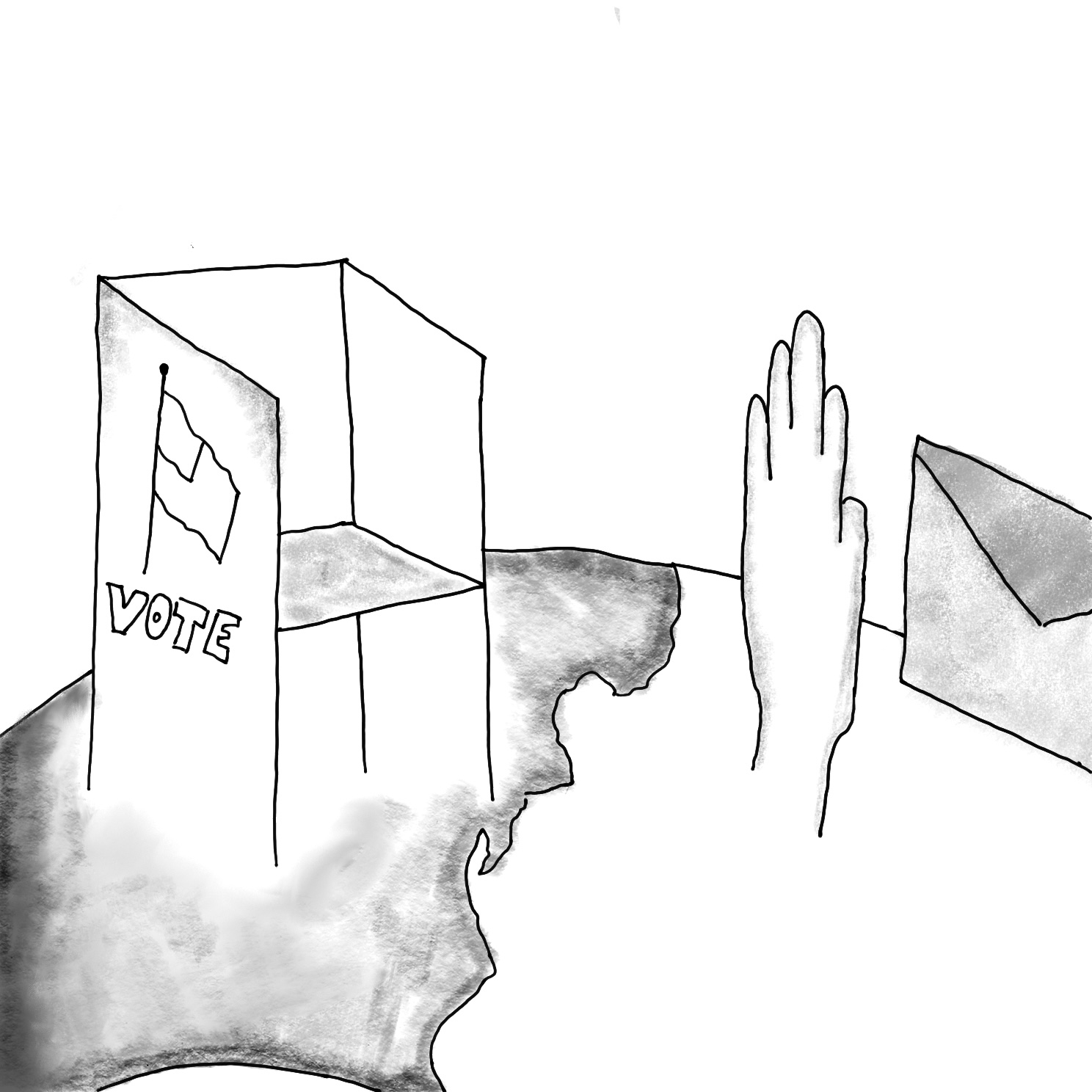Beyond the ballot: How current obstacles in absentee voting mirror the voter suppression tactics of Jim Crow
October 11, 2024
 This
piece represents the opinion of the author
.
This
piece represents the opinion of the author
.
 Juan Chang
Juan ChangAbsentee voting is a confusing, frustrating and painstaking process.
Too many Americans who are living abroad assume that absentee voting has to be this way. I’m here to tell you that it doesn’t.
Americans have become accustomed to voting being not a right, but a privilege when they’re away from their home states. But it doesn’t matter how far away you are from the United States, and it doesn’t matter how long ago you actually traveled back to the United States—if you’re a citizen, it is your right to vote.
I’m speaking from the perspective of an American who is registered to vote in Massachusetts—absentee voting for me was incredibly simple and straightforward compared to millions of other Americans abroad. In fact, I did it in under ten minutes on Monday in the Main Library at the University of St. Andrews, 3,090 miles away from my registered address.
Massachusetts, like Maine, allows its voters to cast their ballots from a secure online web portal, and they can complete their entire voting process online through communication with their town and city clerks.
But living in the U.K., I quickly realized that many Americans do not have as simple a system to vote absentee. The process changes from state to state, and many states, even those which claim to be incredibly progressive—I’m looking at you, California and New York—make voting absentee not only confusing, but costly.
Take my friend Caroline, who is a student at Emory University and voting absentee in Georgia. She’s also a student studying abroad at the University of St. Andrews.
She started her voting process online on a secure web portal but she quickly learned it would not be as simple as it was for me. Her process included printing her newly completed ballot off her web portal as well as photocopying a form of ID, buying two separate envelopes for her ballot and her photo-copied ID and paying for stamps to mail her ballot internationally.
All these steps, although seemingly minor inconveniences, add up to a system that makes the right to vote less accessible. What took me ten minutes to complete took her multiple trips to printers and post offices.
This is voter suppression.
In a diverse swing state like Georgia, with a history of voter suppression tactics, these measures are unfortunately unsurprising.
Our constitution gives states the right to define their election standards and methods. We’ve seen throughout this nation’s history how different states suppress certain votes through their local laws and regulations.
One hundred years ago, this took the form of poll taxes and literacy tests, yet these vestiges of a seemingly bygone era are still found across the country in states’ absentee voting applications and systems.
When my friend has to pay for postage and envelopes, she is paying a modern-day poll tax. When she must read through complicated instructions about printing and posting and even folding ballots, she is taking a modern-day literacy test.
The Voting Rights Act of 1965 abolished these forms of voter discrimination across the country, but the voter suppression tactics of the Jim Crow South persist for absentee voters.
Georgia is just one of the states making it difficult to vote absentee. My friend from Pennsylvania must also jump through multiple hoops just to print and mail her absentee ballot application, and she hasn’t even gotten her official election ballot.
I’ve finished voting, but my Pennsylvanian friend hasn’t even gotten the chance to begin her voting process.
Pennsylvania and Georgia are two of the most pivotal states in the 2024 Presidential Election, but my friends’ abilities to vote are more difficult than mine. I don’t believe this is something we should just accept as a way of life. Voting can and must be something we can all accomplish with ease without being encumbered by expenses and complicated instructions, even when we’re thousands of miles away from our registered addresses.
I’m only highlighting the story of two people from Pennsylvania and Georgia, but I hope these anecdotes highlight how absentee voting in America is not a monolith.
In New York and California, for example, international absentee voters are required to print out their ballots and mail them back to the states with international postage—not a cheap cost. Moreover, in New York, voters are required to fold their ballots in a hyper-specific, origami-like manner in order to make sure their vote is counted. If you’re curious to see just how complex this folding is, look up “How to fold the New York State 2024 General Election ballot” on YouTube. Seriously, they don’t make it easy for voters to vote.
If your voting process is simple, don’t take it for granted. If your voting process is anything but simple, don’t settle.
Your state legislatures determine what your election and voting laws are. I know this is a presidential election year, but let this serve as a reminder that your state elections are just as important.
Voter suppression anywhere hurts our democracy, and absentee voting is not a privilege—it’s a right.

Comments
Before submitting a comment, please review our comment policy. Some key points from the policy: